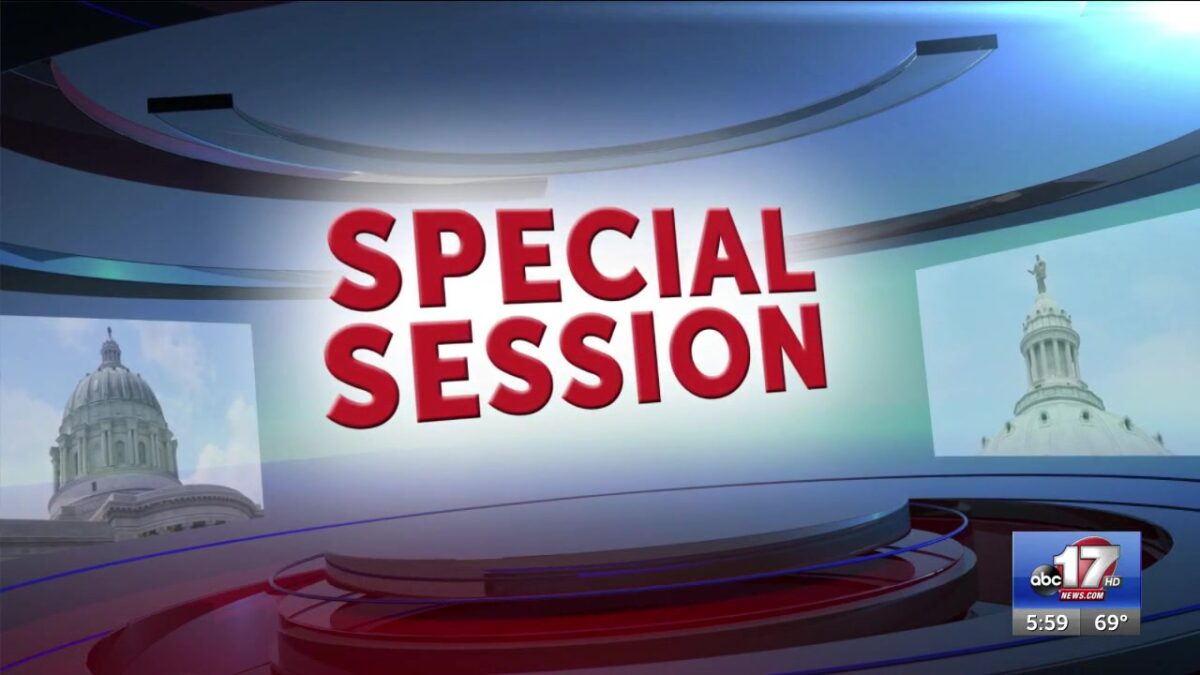Missouri lawmakers considering property tax freeze bill that could affect school funding

Erika McGuire
COLUMBIA, Mo. (KMIZ)
Missouri lawmakers are considering a bill that would freeze property taxes, which could affect how school districts across the state are funded.
Senate Bill 3 is under discussion during a special session called by Gov. Mike Kehoe that began this week. The proposal would expand a property tax credit program currently available to seniors, allowing more homeowners to apply to have their property taxes frozen at a certain level.
Counties would have the option to adopt the program or let voters decide. The bill applies to dozens of Missouri’s 115 counties including Cooper, Saline, Audrain, Monroe, Macon, Randolph, Callaway, Montgomery, Osage and Gasconade. Boone and Cole counties are not on the list.
While the bill is aimed at providing relief for homeowners, it raises concerns about a possible lack of funding for public schools and other essential local services that rely on property taxes.
The bill states eligible taxpayers are defined as residents who:
Are the owner of record of or have a legal or equitable interest in a homestead
Are liable for the payment of real property taxes on such homestead.
The property tax credit would cover the difference between what you owe now and what you owed when you first qualified. It would hold property tax increases under 5% in some counties and flat in others.
President of the Columbia Missouri National Education Association Noelle Gilzow said school districts in the counties could face significant funding challenges
“Putting a cap on property tax or the ability to raise funds through property tax would have a negative impact on their overall budget,” Gilzow said.
While Columbia Public Schools won’t be directly impacted right now, Gilzow said CPS relies on property taxes for 50% of its total budget and larger school districts often depend on them even more.
She says without proper funding, staffing would likely take the first hit.
“If you have fewer teachers then class sizes get bigger and the ability to have one on one relationships and provide individualized attention gets reduced,” Gilzow said.
“Roughly 80% of the budget goes to personnel and salaries so I’m assuming that fraction being so large that would be the part that would be hurt first,” Gilzow added.
Gilzow says the impact wouldn’t just be felt in large districts.
“The smaller districts that may be impacted even if it isn’t as big of a piece of their budget pie and their budget are smaller any impact can have devastating impacts on the operation of a school,” Gilzow said.
Over time, this could create a funding gap with the cost of inflation, building needs and more. Gilzow said if the measure passes alternative funding would be needed but it’s unclear where it would come from.
Counties with increases frozen at 5% under bill
Butler
Carter
Dunklin
Mississippi
New Madrid
Oregon
Pemiscot
Ripley
Stoddard
Wayne
Andrew
Atchison
Caldwell
Carroll
Chariton
Clinton
Daviess
Dekalb
Gentry
Grundy
Harrison
Holt
Linn
Livingston
Mercer
Nodaway
Sullivan
Worth
Benton
Cedar
Dallas
Henry
Hickory
Pettis
Polk
St. Clair
Vernon
Cooper
Saline
Lafayette
Ray
Crawford
St. Francois
Ste. Genevieve
Washington
Platte
Buchanan
Adair
Audrain
Clark
Knox
Lewis
Macon
Marion
Monroe
Putnam
Ralls
Randolph
Schuyler
Scotland
Shelby
Jasper
Newton
Bollinger
Cape Girardeau
Iron
Madison
Perry
Reynolds
Scott
Bates
Callaway
Lincoln
Montgomery
Pike
Counties with 0% increases under bill
Cass
Johnson
Franklin
Gasconade
Osage
Warren
Jefferson
Douglas
Howell
Ozark
Shannon
Stone
Taney
Texas
Barry
Christian
Lawrence
McDonald
St. Charles
Barton
Dade
Webster
Check back for updates to this developing story.